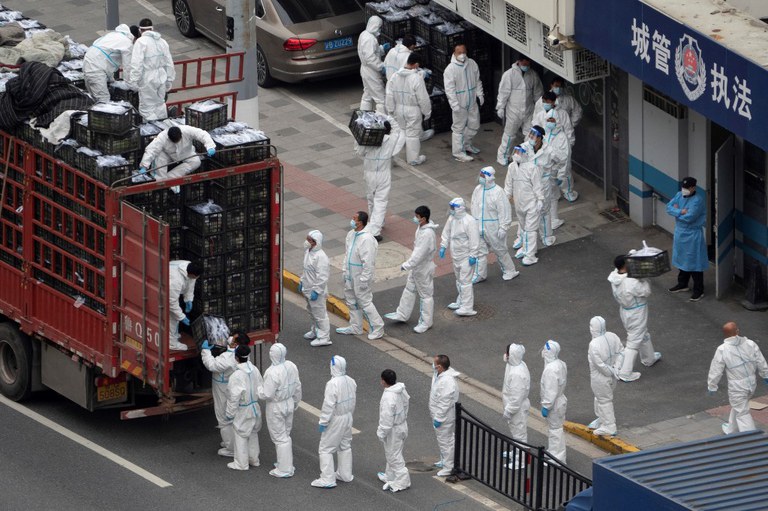Chinese official jailed for 11 years over bribes in Qinghai
A former top official in China’s Qinghai province was given 11 years in prison last month for taking more than $3 million in bribes from mining and construction groups, businesses and individuals during his time in office, according to state media reports. Wen Guodong had served as vice-governor in Qinghai from 2009 to 2020. He was sentenced on March 29 by the Chongqing First Intermediate People’s Court, which also fined him 2 million yuan ($314,213) and forced the return of his assets gained through bribes, sources said. While in office, Wen had protected illegal mining operations at Qinghai’s Muli coalfield, a vast mining area developed by the Kingho Group, a private company, according to a Feb. 2, 2021, report by the Beijing-based China Biodiversity Conservation and Green Development Foundation. Located in Themchen (in Chinese, Tianjun) county in the Tsonub (Haixi) Mongol and Tibetan Autonomous Prefecture, the Muli coalfield was described in an Aug. 8, 2014, report by Greenpeace East Asia as a “growing cancer on an otherwise intact alpine ecological system.” “The opencast coal mining [at Muli] over the years has destroyed the alpine meadows connecting the glaciers on the mountains and the plateau, cutting off the channel for rainfall and melt water to feed the rivers,” the environmental watchdog group said. “As a result, the water-holding capacity of the landscape is significantly compromised,” Greenpeace added. Coverage of Wen’s case in the Chinese press has downplayed the impact of the former official’s corruption on the environment in Tibetan areas, though, said Sangay Kyab, a Tibetan researcher based in Spain. “By just highlighting the bribery charges against Wen Guodong, the Chinese official media have ignored the damage he caused to the region, and how the excessive exploitation of Tibet’s environment has deprived Tibetans of their traditional way of life,” Kyab said. “The Chinese government has always tried to conceal these problems, no matter what impact their development and environmental policies have had on Tibetans and the Tibetan plateau,” he added. Sentencing disparities in China’s justice system also point to the unequal treatment of Tibetans under Chinese law, Kyab said, calling Wen’s 11-year sentence “lenient” in relation to the harm his actions caused. Kyab noted that Go Sherab Gyatso, a 46-year-old monk at Kirti monastery in Sichuan’s Ngaba (Aba) Tibetan Autonomous Prefecture, had been given a 10-year prison term in 2021 just for expressing loyalty to Tibet’s exiled spiritual leader the Dalai Lama. “So we can see that Chinese leaders and officials really do get away with crimes and atrocities,” he said. Tibet has become an important source of minerals needed for China’s economic growth, and Chinese mining and infrastructure projects in Tibetan areas have led to widespread environmental damage, including the pollution of water sources and destruction of sacred sites, experts say. Translated by Tenzin Dickyi for RFA’s Tibetan Service. Written in English by Richard Finney.




